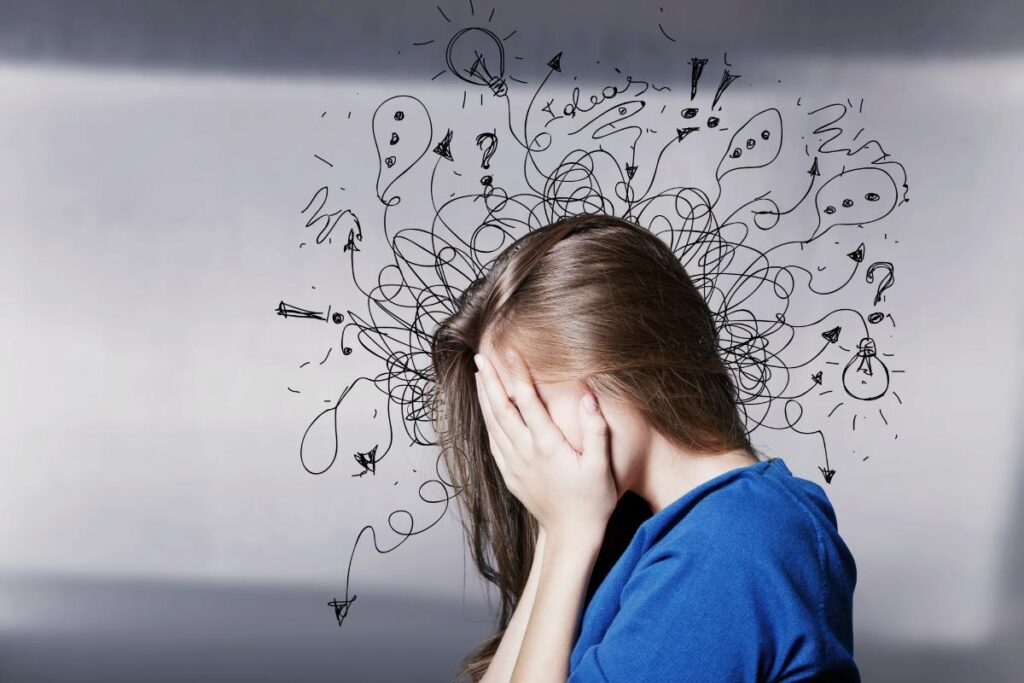Everyone has symptoms of anxiety at some point, but not everyone understands what an anxiety attack is or how the fear of having one can affect a person’s life. If you know someone who struggles with anxiety and addiction, call Woodland Recovery Center at 662.222.2989 and ask about our anxiety and addiction treatment program.
What Does an Anxiety Attack Feel Like?
If you’re asking, “What does an anxiety attack feel like?” it may mean you are trying to understand the experience of someone you care about or make sense of your own symptoms.
An anxiety attack is a mixture of mental, emotional, and physical symptoms that may differ for every person and even from episode to episode. In order to understand the impact of an anxiety attack, it is important to distinguish an anxiety attack from a panic attack.
Panic attacks are the main symptom of panic disorder, which is acknowledged in the Diagnostic and Statistical Manual of Mental Disorders (DSM). This classification explains why so many people think that anxiety attacks and panic attacks are the same. However, “anxiety attack” is not a formal clinical term.
While some symptoms are similar, anxiety attacks typically build slowly over several hours or even days. Panic attacks are acute and intense. The symptoms of a panic attack disappear almost as quickly as they appear. The symptoms of an anxiety attack may be more likely to linger and ease slowly.
In addition, anxiety attacks are typically linked to identifiable triggers, while panic attacks seem to come out of the blue without warning.
Signs of an Anxiety Attack
The signs of an anxiety attack vary. A person may experience many of the symptoms one time and then experience only one or two during their next episode. The intensity may also vary. Symptoms include:
- Feelings of dread and apprehension
- Dry mouth
- Headache
- Diarrhea
- Muscle tension
- Nausea
- Sleep disturbances
- Rapid heart rate
- Sweating
- Shaking
- Trouble concentrating
- Incessant worry
- Tightness in the chest and throat
- Lightheadedness
- Confusion
- Hot/cold sensations
- Dizziness
- Weakness or tingling in the extremities
- Feeling the desire to flee
- Feeling disconnected as if you’re watching yourself
- Intense need to defecate or urinate
Some people also feel overly emotional when anxiety levels are building toward an “attack.” They may cry easily, have angry outbursts, or have unexplained mood swings.
What Causes Anxiety Attacks?
There are many potential causes for anxiety attacks, including several medical causes. If you are experiencing anxiety attacks, it is important to have a thorough medical examination to rule out a serious health problem.
According to research in the journal Behavioural and Cognitive Psychotherapy, anxiety attacks can mimic the warning signs of multiple sclerosis, thyroid conditions, and heart problems.
Anxiety attacks may be caused by severe stress. People who have been diagnosed with anxiety disorders are at a higher risk of experiencing anxiety attacks.
Being exposed to certain environments or situations may also trigger an attack. For example, individuals with social phobia may have an anxiety attack when they are forced to participate in social situations.
Is There Treatment for Anxiety Attacks?
Anxiety is a treatable condition. A combination of therapeutic techniques, such as cognitive-behavioral therapy, medications, and lifestyle changes, can effectively minimize the number and intensity of anxiety attacks.
Emergency treatment is not typically necessary, but if you are having difficulty breathing or experiencing chest pain, seek emergency medical care.
Find Help for Anxiety at Woodland Recovery Center
People struggling with addiction disorders may also experience anxiety and anxiety attacks. Our comprehensive addiction treatment programs can help patients minimize anxiety symptoms and improve their mental health on every level. Call Woodland Recovery Center today at 662.222.2989 or fill out our online contact form for more information about anxiety treatment.



